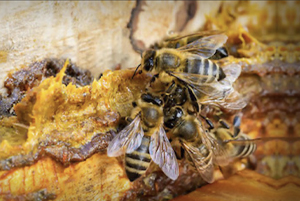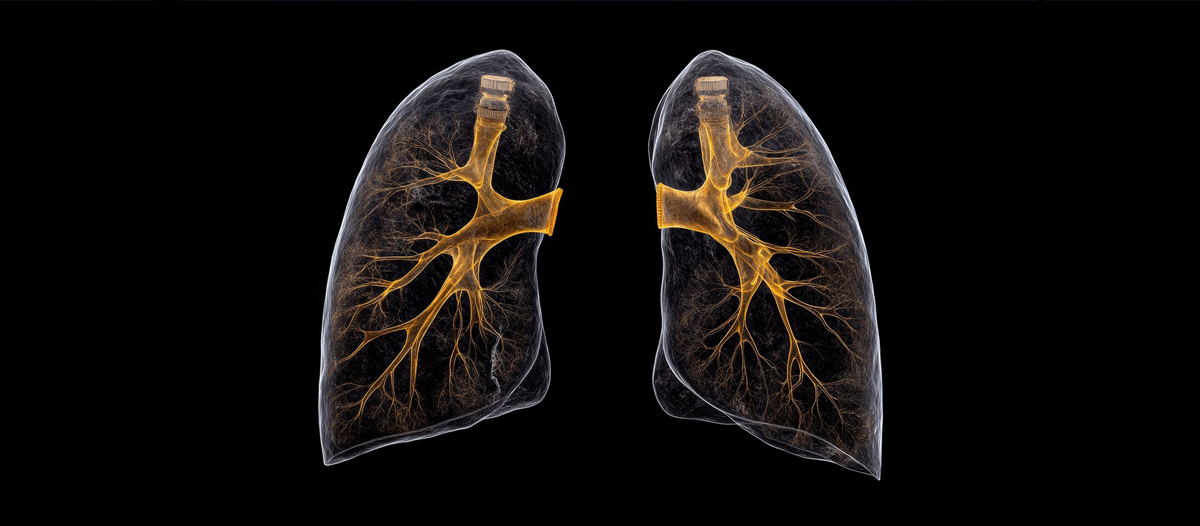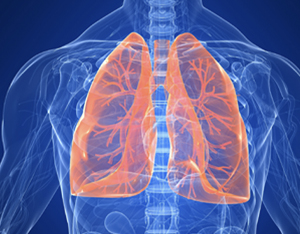Airway Armor: How Propolis Fortifies Respiratory Health
by Mark J Kaylor
Propolis has shown considerable promise in respiratory health, particularly through its anti-inflammatory, antimicrobial, antioxidant, and immune-modulating effects. These mechanisms can be beneficial not only for COVID-19 but also for other respiratory illnesses, such as the common cold, influenza, and bacterial infections. Here’s a closer look at how propolis supports respiratory health across various physiological pathways:
Reduction of Inflammation in Respiratory Tissues
Respiratory illnesses like COVID-19, influenza, and even common colds can cause significant inflammation in the respiratory tract, leading to symptoms such as sore throat, cough, and shortness of breath. Propolis’s anti-inflammatory properties can alleviate this inflammation and reduce symptoms.
-
Inhibition of Inflammatory Pathways:
Propolis contains bioactive compounds like caffeic acid phenethyl ester (CAPE), chrysin, and galangin, which have shown effectiveness in inhibiting NF-kB, a protein complex that drives the release of pro-inflammatory cytokines. Reducing NF-kB activity can help decrease inflammation in the respiratory tract, thus potentially easing symptoms of airway irritation.
-
Modulation of Cytokine Production:
Research indicates that propolis can decrease the production of pro-inflammatory cytokines such as IL-6 and TNF-α, both of which are associated with severe respiratory inflammation in viral infections. By moderating these cytokines, propolis helps prevent excess inflammation that can damage lung tissue in diseases like COVID-19, influenza, and other viral infections.
Antimicrobial and Antiviral Support for Respiratory Infections
One of the most beneficial qualities of propolis is its broad-spectrum antimicrobial action, which includes antiviral, antibacterial, and antifungal effects. This makes it especially useful in preventing and alleviating respiratory infections, which often involve multiple pathogens.
- Inhibition of Viral Replication:Certain compounds in propolis, such as quercetin and apigenin, have shown antiviral effects, inhibiting viral enzymes and proteins necessary for replication. For COVID-19 and influenza, propolis may help inhibit the replication cycle within respiratory cells, reducing viral load and easing symptoms.
-
Antibacterial Effects:
Secondary bacterial infections are common complications in viral respiratory illnesses. Propolis contains potent antibacterial agents, including pinocembrin and galangin, which have been effective against Streptococcus pneumoniae and Haemophilus influenzae, two bacteria often responsible for respiratory complications. These antibacterial properties make propolis valuable in preventing and managing bacterial co-infections.
-
Antifungal Support:
Respiratory conditions like COVID-19 can sometimes be complicated by fungal infections, especially in immunocompromised individuals. Propolis has antifungal properties, effective against common pathogens like Candida albicans and Aspergillus, reducing the risk of fungal complications.
Antioxidant Defense Against Oxidative Stress in Lung Tissue
Respiratory infections are often accompanied by oxidative stress, which can damage lung tissues and exacerbate symptoms. Propolis’s antioxidant properties may provide significant protection for lung cells.
-
Neutralization of Free Radicals:
Propolis is rich in antioxidants, including flavonoids (like quercetin and kaempferol), that scavenge free radicals, reducing oxidative damage in the lungs. This can prevent or alleviate lung tissue damage that often results from infections and inflammation in conditions like COVID-19 and influenza.
-
Reduction of Reactive Oxygen Species (ROS):
Respiratory cells infected by viruses can produce high levels of ROS, contributing to oxidative stress and tissue damage. Propolis has been shown to reduce ROS levels, particularly in lung cells, which may help maintain respiratory function during infections.
-
Protection of Alveolar Cells:
The alveoli (tiny air sacs in the lungs) are highly susceptible to oxidative damage during severe respiratory infections. Propolis’s antioxidant action may protect these cells, preserving lung capacity and function, especially important in severe respiratory illnesses like COVID-19.
Enhanced Mucosal Immunity in the Respiratory Tract
The mucosal lining of the respiratory tract is a critical first line of defense against pathogens. Propolis supports mucosal immunity, making it harder for viruses and bacteria to establish infections in the respiratory pathways.
-
Strengthening of Epithelial Barriers:
Propolis can enhance the integrity of the respiratory epithelium, the tissue lining the respiratory tract. This barrier becomes more resistant to pathogen infiltration, limiting viral entry and replication.
-
Promotion of Mucosal Immunoglobulin A (IgA):
Propolis has been shown to enhance the production of IgA, a type of antibody crucial for mucosal immunity. IgA binds to pathogens on mucosal surfaces, preventing them from attaching to and invading respiratory cells. This is especially beneficial in protecting against viruses that enter through the respiratory tract, such as SARS-CoV-2 and influenza.
-
Bronchodilation:
Research suggests that propolis may have mild bronchodilatory effects, which relax and widen the airways, making breathing easier. This effect can alleviate symptoms in conditions with respiratory constriction, such as asthma or viral infections that cause bronchial inflammation.
-
Mucus Clearance:
Propolis may aid in mucus clearance by thinning and loosening mucus, acting as a natural expectorant. This can be especially helpful in managing respiratory infections that produce thick mucus, facilitating the removal of pathogens and easing congestion.
Endothelial Protection in Lung Blood Vessel
COVID-19, in particular, can cause damage to the endothelial cells lining blood vessels in the lungs, leading to complications such as blood clots and impaired oxygen exchange. Propolis may help protect these cells and maintain respiratory function.
-
Vascular Protection:
Propolis contains compounds such as pinocembrin, which supports the health of endothelial cells by reducing inflammation and oxidative stress. This may reduce the risk of blood clots and support overall lung function during infection.
-
Anti-Coagulant Activity:
Propolis has mild anti-coagulant effects, which may help prevent the formation of blood clots in lung vessels without the intensity of full anticoagulant therapy. This could be beneficial in COVID-19 patients where clotting risks are elevated.
 Propolis – A Natural Solution for Respiratory Resilience
Propolis – A Natural Solution for Respiratory Resilience
With its multi-faceted effects on respiratory health, propolis emerges as a promising natural ally in defending against respiratory illnesses, from colds and influenza to more severe infections like COVID-19. By reducing inflammation, neutralizing pathogens, protecting lung tissue, and supporting mucosal immunity, propolis offers comprehensive respiratory benefits. For those seeking natural options to bolster respiratory health and resilience, propolis may provide the targeted support needed in today’s health landscape. As we continue to uncover the potential of natural remedies, propolis reminds us that the bee’s gift to humanity is more valuable than ever, enhancing our ability to breathe easy and stay well.
Mark J. Kaylor is a passionate advocate for holistic health and natural remedies, with a focus on extending both lifespan and healthspan. As the founder of the Radiant Health Project and host of Radiant Health Podcast, Mark blends in-depth research with traditional wisdom to empower others on their journey to vibrant health. Through his writing and speaking, he shares insights into the transformative power of herbs, nutrition, and lifestyle practices.
Disclaimer: All information and results stated here is for educational and entertainment purposes only. The information mentioned here is not specific medical advice for any individual and is not intended to be used for self-diagnosis or treatment. This content should not substitute medical advice from a health professional. Always consult your health practitioner regarding any health or medical conditions.






